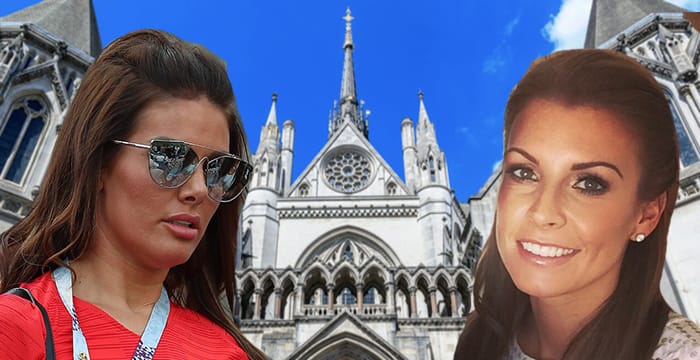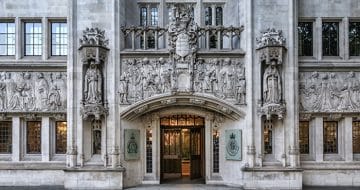Aspiring barrister Cassie Blower deliberates the highly publicised ‘Wagatha Christie’ scandal and considers Coleen Rooney’s possible defence

On 23 June 2020, news broke that Rebekah Vardy had issued a libel claim in the High Court against Coleen Rooney relating to a statement Rooney made on her Twitter account accusing Vardy of leaking stories about her to the tabloid press.
News of Vardy’s decision to launch a legal claim has provided an exciting development for those who have been engrossed in the saga. Vardy’s claim also serves as a reminder that whilst legal aid is being relentlessly cut, celebrities’ bank accounts will always be litigation-friendly.
An exploration of the legal issues surrounding Vardy’s claim and what Rooney’s chosen defence could mean for the outcome of the case are provided here.
Background
For those who have managed to avoid the story, on 9 October 2019 Rooney tweeted a statement in which she accused Vardy of leaking stories about her to The Sun newspaper. It was arguably not the accusation itself that garnered so much attention but rather the outline Rooney gave of her investigatory methods, which led to her being dubbed ‘Wagatha Christie’.
In the statement, which is still viewable on her Twitter page (embedded below), Rooney revealed how she had blocked everyone from viewing her Instagram Story bar the account of one individual who she suspected might be the culprit. She then posted false information to her Story to see if it would be shared with The Sun. After articles based on this false information appeared in The Sun — including a story about the basement flooding in her new home — Rooney stated that she knew which “account/individual” was responsible. In a line that launched a thousand memes, Rooney concluded by stating: “It’s……….Rebekah Vardy’s account.”
This has been a burden in my life for a few years now and finally I have got to the bottom of it…… pic.twitter.com/0YqJAoXuK1
— Coleen Rooney (@ColeenRoo) October 9, 2019
Following the statement, Vardy publicly denied all the allegations and later gave a tearful interview on Loose Women in which she described the scandal, which occurred when she was seven months pregnant, as one of the worst things she’s had to deal with. She described how it had even led to her being hospitalised.
Relevant defamation law
Libel is a form of defamation that concerns ‘lasting’ publications such as print or broadcast media or, as in this case, tweets. As the Supreme Court confirmed in Lachaux v Independent Print Ltd [2019], section 1(1) of the Defamation Act 2013 altered the previous common law and now means that libel will only be actionable where it can be shown that a defamatory statement did cause, or was likely to cause, serious harm. The Explanatory Notes to the Defamation Act explain that this means serious harm to the claimant’s reputation.
Vardy will thus either have to prove that she actually suffered serious harm to her reputation as a result of Rooney’s tweet, or that the tweet was likely to have caused this.
There are a number of remedies available including damages, an injunction, publication of a summary of the court’s judgment, and an order to remove the defamatory statement.
Damages are the primary remedy and are usually made in the form of compensation for the claimant’s distress or for any losses caused by the damage to their reputation. Aggravated damages are also available where the defendant’s behaviour has been particular hurtful to the claimant.
Want to write for the Legal Cheek Journal?
Find out moreIn response to Rooney accusing her of leaking stories to The Sun, Vardy said: “I’m not being funny but I don’t need the money.” It is arguably questionable whether Vardy will be seeking damages. What is more likely perhaps is that Vardy will seek an order to remove the statement given that it is still available on Rooney’s Twitter page. Pursuant to section 13 of the Defamation Act, the court has the power to order Twitter to remove the statement.
Available defences
A number of defences are available to defendants as set out at subsections 2-7 of the Defamation Act. The most relevant are discussed below.
Truth
Section 2(1) of the 2013 Act states that: “It is a defence to an action for defamation for the defendant to show that the imputation conveyed by the statement complained of is substantially true.”
Those wishing to get to the bottom of whether it really was Vardy’s account will likely be wanting Rooney to run this defence which would require her to prove that her statement was true as a matter of objective fact. This serves as an absolute defence to a defamation claim.
Although a high threshold to meet, Rooney’s solicitor, Paul Lunt, partner and head of litigation at Brabners, said in a statement made on behalf of Rooney that she has further evidence to support her accusations suggesting that this could be the defence she chooses to plead. If the claim is to go to trial, this defence may also involve the court assessing the reliability of Rooney’s sleuthing techniques.
Honest opinion
Section 3 of the 2013 Act sets out the defence of honest opinion.
This applies where the following conditions are met: the statement was a statement of opinion (section 3(2)); the statement indicated the basis of the opinion (section 3(3)); and an honest person could have held the opinion on the basis of any fact which existed at the time the statement complained of was published (s3(4)(a)) or anything asserted to be a fact in a privileged statement published before the statement complained of (s3(4)(b)).
If Rooney were to plead this defence, it would require the court to assess whether her statement was presented as one of fact or opinion. The issue of delineating between the two was addressed by Warby J in Barron & Ors v Collins [2015] where he said [at paragraphs 15-17]:
“[A] statement expressed as an inference will often be an expression of opinion… It is not submitted, however, and I do not understand it to be the law, that any statement about a matter, the facts of which cannot be within the personal knowledge of the speaker, is to be treated as an inference and hence a statement of opinion…
The way the statement would strike the ordinary reasonable listener and viewer is a sufficient criterion.”
Thus, if this defence was pleaded, the views shared by members of the public on her statement may be more relevant than previously thought. Was ‘Wagatha Christie’ stating the water-tight conclusion of her foolproof detective work, or was she simply making an inference from her Instagram investigation as to who the culprit was?
Publication on matter of public interest — section 4 Defamation Act 2013
This would be bold of Rooney, let’s be honest.
Although some may be following the progress of the case with keen interest, Rooney’s solicitor said this week on her behalf: “Coleen feels that the time and money involved could be put to better use.”
Cassie Blower is a first class law graduate from the University of Bristol and has completed the BCL at the University of Oxford. She currently works at Keating Chambers as a legal assistant.


Please bear in mind that the authors of many Legal Cheek Journal pieces are at the beginning of their career. We'd be grateful if you could keep your comments constructive.